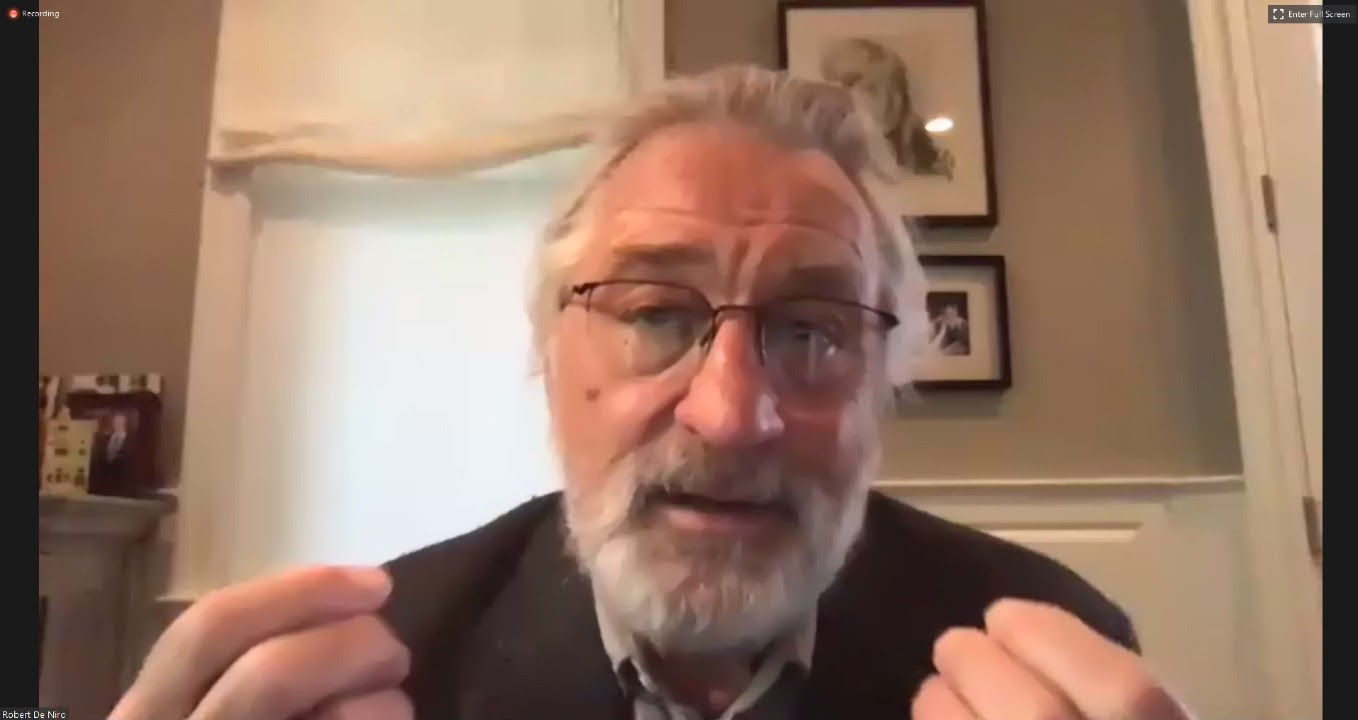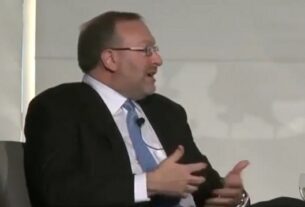Robert De Niro: “COVID-19 is a terrible, even worse than 11/9 disaster”
Talking with Tel Aviv University’s students Robert De Niro said: “As I get older, maybe I start to see that there are people in this world who are not good and should not be in places where we know that they are now.”
For almost an hour, legendary actor Robert De Niro captivated an audience of 2,000 film and television students, governors and friends of Tel Aviv University who took part in a webinar last night.
With behind-the-scenes stories from the films, he starred in, highlighting the planning and decision-making that are necessary to create a winning film. The webinar with Robert De Niro followed last month’s interview with Michael Douglas.
Ido Aharoni, a TAU alumnus and governor, conducted the interview.
When asked about selecting and preparing for roles in crime and law enforcement films as well as in comedies, De Niro said that some roles offer him more flexibility and personal input. When working with his friend “Marty” Scorsese, he and the other actors are “guided into what becomes the final product.”
Touching on U.S. politics, De Niro, known as an outspoken critic of President Donald Trump, reflected, “As I get older, maybe I start to see that there are people in this world who are not good and should not be in places where we know that they are now. They are unforgiving and should not be forgiven for their badness. And there are characters I would not want to even play like you know who.”
When asked how he has been coping with the COVID-19 crisis and what effect the virus will have on the film industry, De Niro responded, “It’s a terrible situation for all of us. It shouldn’t have happened the way it did. This is a situation that could have been minimized or possibly even avoided.” He concluded, “We are paying for it now, and dying for it.”
De Niro is uncertain as to whether streaming platforms signal the end of cinema, especially given the current reality of lockdowns and social distancing. “Streaming is good because you can tell a story in a much longer and detailed way,” he said. “But I don’t know where we are going with it, especially with this COVID-19. There will always have to be theaters. You want to watch a movie with an audience. I do at times, especially a comedy or any movie that has something in it.”
De Niro said he was grateful to Netflix for financing one of his films, which was shown first in theatres for a few weeks, then streamed on Netflix.
De Niro reminisced about his first trip to Israel, about 40 years ago. Then, he met Moshe Dayan and Ezer Weizman and began friendships that endure until today. His most recent trip was in 2013 on the occasion of former President Shimon Peres’ 90th birthday. He travelled to Israel with one of his children and described Shimon Peres as “a great person, a great statesman.”
De Niro concluded with advice to the students: “Keep your own voice, specifically yours, as much as possible…Personalize your performance, along the lines of what is demanded of it. Follow your instincts.” It seems that he himself has followed this advice throughout his prolific career.





